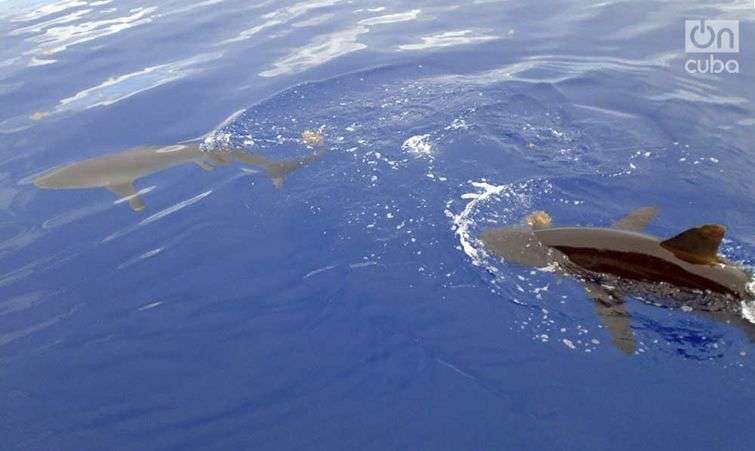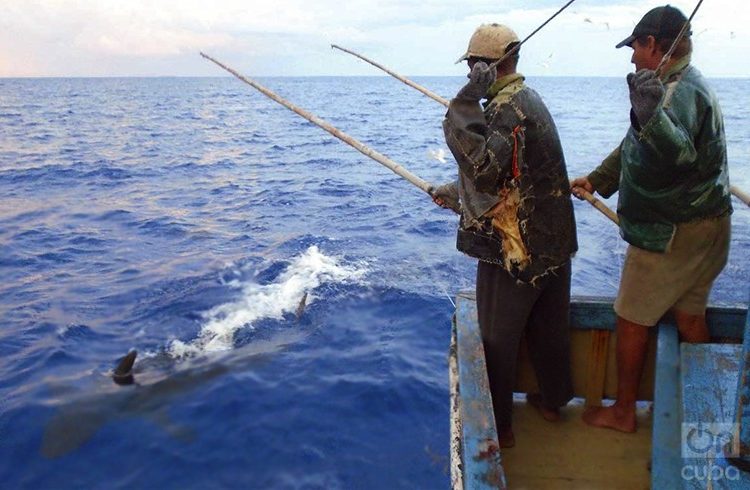Time and time again movies have portrayed sharks as the bad guys, but those with a more acute knowledge of these misunderstood animals claim that sharks aren’t as evil as they are made out to be.
Juan Lázaro Martínez, captain of the September 25th, a boat dedicated to tuna fishing in the waters surrounding Cuba’s western region, says to OnCuba that “several fishermen have fallen in amongst them and not one has been eaten.”
The same thing happened to Juan Lázaro himself once: “When I was younger and got straight back out of the water, without a single scratch,” he says.
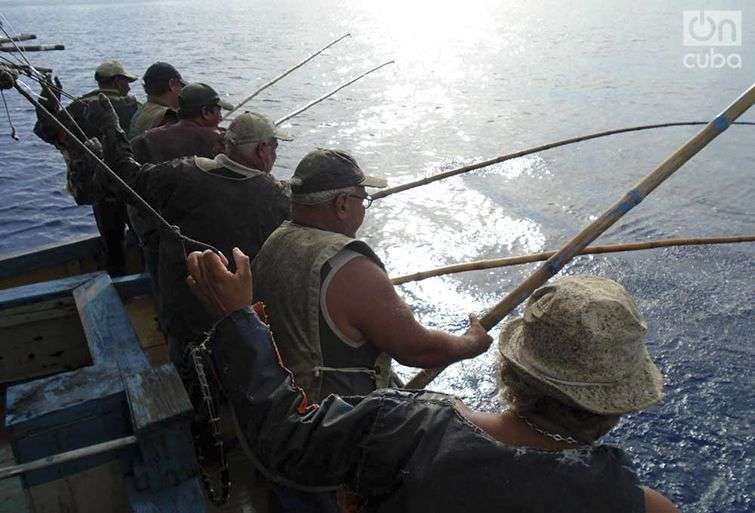
Despite their historically bad reputation, the man who has spent 40 years of his life sailing with sharks explains that their presence is vital to locating schools of tuna.
Such is the case that another veteran fisherman, Vicente Rodríguez, believes that the animals act as a guide for the boats. “Wherever there’s fish there’s sharks.” So, after locating the schools and casting their lines, a crew member sets himself to the task of throwing the bloody fish guts from the catch into the water.
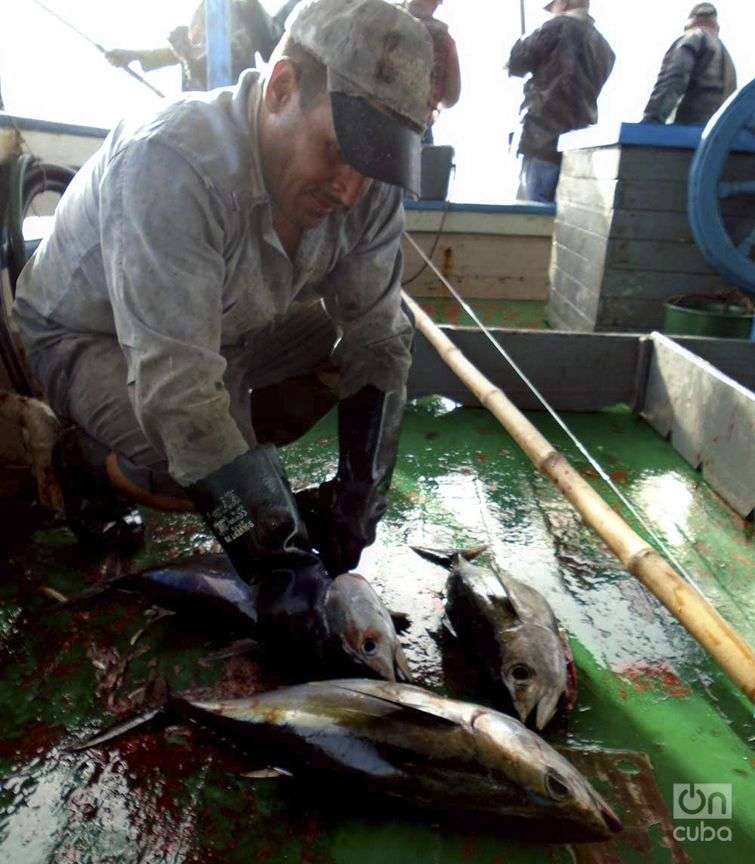
The objective is to attract as many of these fearful creatures as possible to the boat, in order to catch the most tuna. “This helps us to fish. We can catch several tons in just a few minutes,” say Juan Lázaro.
For many fishermen therefore, sharks are allies, and instead of hunting them down the animals are protected. “Many are tagged so that they can be identified and we can track their route. There’s one here that we call ‘bembiblanco’ (white nose) because that’s the color of its snout and we named another ‘El Manco’ (amputee), because it’s missing a fin.”
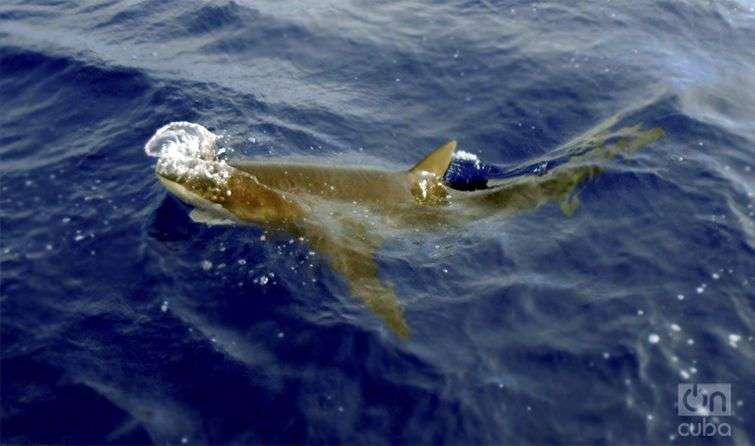
However, for decades sharks have generated such fear and panic (sometimes for good reason), that most people the world over think twice before going for a swim in the sea.
In countries like Cuba, this has obliged some travel agencies to make clear on their websites that shark attacks on humans are extremely rare.
According to statistics, in 50 years only four shark attacks have reportedly occurred in the waters surrounding the island, none of which ended in fatalities. Not even in the Gulf of Mexico, where the Cuban fleet fishes for tuna, does anyone remember a fisherman having died in the jaws of a shark.
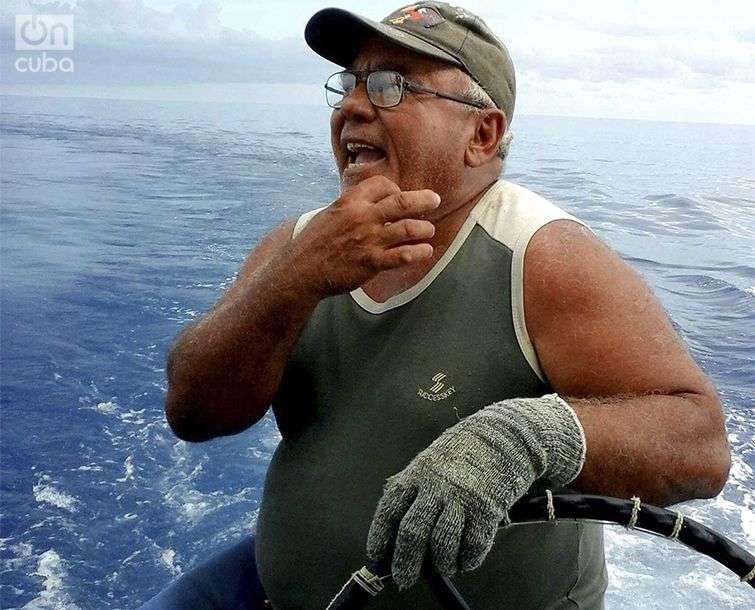
“Astonishing, considering that many have fallen overboard into shark filled waters,” notes Vicente Rodríguez. “It happened to Gustavo, a bait thrower on the Cayo Largo 012 boat and Félix, fisherman on the 109. His crewmates pulled him out of the water using poles.
In the commotion a shark grazed passed him taking the skin off his heel. Their skin is like sandpaper. Falling in amongst sharks is one thing, but begin eaten by one is another.
Here in this zone, in my 30 years as a fisherman I have never heard of that happening.”
Nor has Juan Lázaro, who also fell overboard and lived to tell the tale. Nonetheless, he confesses that he would not like to repeat the experience. “Sometimes there are up to 40 or 50 300pound sharks around the boat, all moving aggressively. Perhaps it’s because of the food we throw to them. The truth is that I’ve been in the water with them once already and I don’t want to do it again.”
